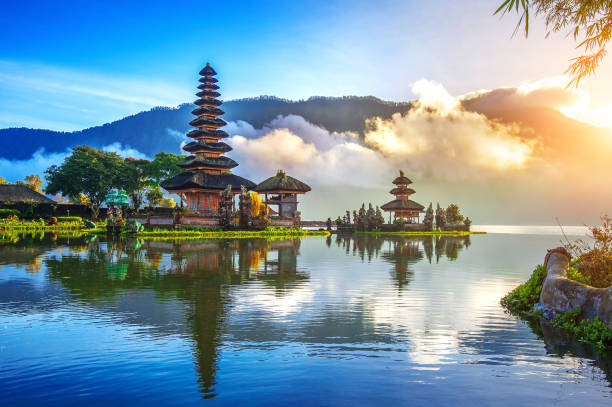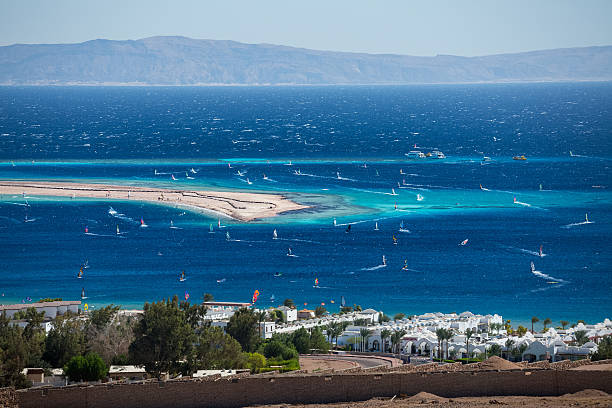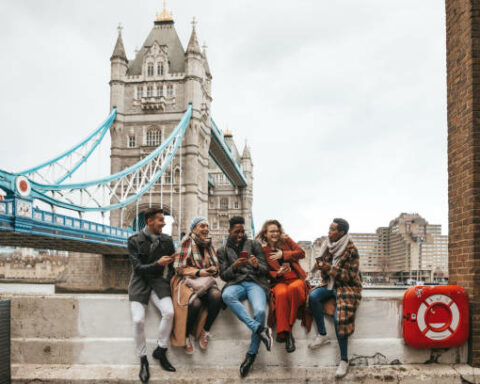Bali, the enchanting “Island of the Gods,” has long captivated travelers with its unique blend of culture, nature, and relaxation. However, the COVID-19 pandemic brought its thriving tourism industry to an abrupt halt, transforming its bustling streets and vibrant beaches into tranquil, almost silent landscapes.
As the world gradually reopens, Bali is not just reclaiming its former glory but is also undergoing a transformation to meet the evolving needs of conscious, post-pandemic travelers. This renaissance marries traditional charm with modern luxury, promising visitors unforgettable experiences.
Ubud: The Heart of Art and Wellness
Ubud has always been the artistic and cultural epicenter of Bali. Since the 1920s, it has attracted expatriates and tourists alike with its rich cultural heritage and natural beauty.
Over time, Ubud has evolved into a global hub for health and wellness, dotted with yoga shalas, organic eateries, spas, and mindfulness retreats. The sacred Monkey Forest remains a beloved attraction, and the old market is currently undergoing renovations to enhance its appeal.
One of Ubud’s hidden treasures is the Four Seasons Resort Bali at Sayan. Tucked away in lush tropical gardens and terraced rice paddies, this resort offers a luxurious retreat focused on holistic wellness.
Guests can indulge in yoga, meditation, chakra ceremonies, and unique activities like the “Sacred Nap.” The resort’s complimentary shuttle service to Ubud’s town center makes it easy to explore local culture and attractions.
Kuta: From Party Central to Family-Friendly Hub
Kuta, once synonymous with Bali’s vibrant party scene, has evolved significantly over the years. Early surfers were among the first to discover its charm, and Kuta’s rapid development eventually merged it with neighboring Legian and Seminyak.
This amalgamation created a bustling area filled with souvenir shops, bars, spas, and tattoo parlors. Despite the pandemic’s significant impact, Kuta is slowly regaining its popularity.
Tribe Bali Kuta Beach, a contemporary beachfront hotel, offers the perfect vantage point for enjoying Kuta’s nightlife. The hotel’s rooftop infinity pool provides stunning views of Kuta’s famous sunsets.
Modern apps like Grab and Gojek facilitate easy exploration of nearby nightlife hotspots in Legian and Seminyak. Notable venues such as Potato Head Beach Club, which pioneered innovative agricultural programs during the lockdown, offer a unique blend of music, dining, and sustainability.
Nirjhara: A Hidden Paradise Near Tanah Lot
Nirjhara, meaning “waterfall” in Sanskrit, is a secluded retreat near the western side of the Tanah Lot temple. This resort provides a blissful escape with its Canopy Suites, which blend industrial chic with recycled tropical charm.
Surrounded by natural beauty, including a river, shady trees, and an infinity pool, Nirjhara invites relaxation. Guests can enhance their experience with massages and “blessing treatments” at the Retreat Spa.
Nirjhara’s prime location makes it an excellent base for exploring Bali’s famous waterfalls, such as the Nungnung Waterfall. The resort also offers bicycles for paddy tours and surf lessons at Kedungu Beach. For those seeking adventure, Nirjhara’s traditional superyacht, Vela, is available for charter to Indonesia’s remote islands.
Jimbaran Bay: Luxury Surfing and Seafood Delights
Jimbaran Bay, located just south of Kuta, offers a more serene alternative to its bustling neighbor. The Four Seasons Resort Bali at Jimbaran Bay features traditional Balinese architecture and private plunge pools.
The resort’s Tropicsurf operation is renowned for its luxury surf-guiding services, catering to all skill levels. Experienced surfers like Blake McKinnon guide guests to numerous surf spots, ensuring a memorable experience.
Jimbaran is also famous for its seafood restaurants and early morning fish market. Beekini Bowl offers a delightful beach breakfast, while Sundara provides unforgettable sundowner cocktails and gourmet beachfront BBQs.
West Bali: The Island’s Best-Kept Secret
West Bali remains one of Indonesia’s hidden gems, offering vast expanses of palm forests, deserted beaches, and jungle heartlands. The newly opened Lost Lindenberg resort exemplifies this area’s allure with its unique timber towers and stunning beachfront location. The resort offers a perfect setting for relaxation and exploration.
West Bali is home to some unexpected sites, such as the colorful fishing fleet at Perancak and the Menjangan deer in West Bali National Park. Visitors can enjoy diving and snorkeling at Menjangan Island and unique experiences like paddy tours with Pink Buffalo. This region offers a glimpse into Bali’s traditional lifestyle, away from the crowded tourist spots.
Embracing the New Bali
As Bali reopens to the world, it offers a harmonious blend of traditional and modern experiences that cater to the desires of conscious travelers.
From the artistic heart of Ubud to the serene beaches of West Bali, the island invites visitors to explore its diverse landscapes and rich culture. Whether seeking wellness, adventure, or relaxation, Bali promises an unforgettable journey of rebirth and rediscovery.
Bali’s transformation post-pandemic is evident in its reinvigorated tourism infrastructure and its commitment to sustainability. Eco-friendly initiatives are becoming more prevalent, with many resorts and attractions adopting green practices to preserve the island’s natural beauty.
Local communities are also playing a pivotal role in this renaissance, ensuring that the island’s cultural heritage remains intact while embracing modernity.
Sustainable Tourism Initiatives
One of the most significant shifts in Bali’s tourism landscape is the emphasis on sustainable practices. Resorts and businesses are increasingly prioritizing eco-friendly operations.
For example, Potato Head Beach Club’s innovative agricultural programs, initiated during the lockdown, focus on sustainability and self-sufficiency. These programs include organic farming, waste management, and renewable energy projects, setting a precedent for other establishments on the island.
In Ubud, the Green School Bali is a pioneering institution promoting sustainability through education. The school offers programs that teach students about environmental stewardship, renewable energy, and sustainable living. This initiative not only benefits the local community but also attracts eco-conscious travelers interested in learning about sustainable practices.
Community Engagement and Cultural Preservation
Bali’s recovery and reinvention are deeply rooted in community engagement and cultural preservation. Local artisans, craftsmen, and performers are integral to maintaining the island’s cultural vibrancy.
Initiatives like the Bali Cultural Workshop offer tourists immersive experiences in traditional Balinese arts, such as dance, music, and handicrafts. These workshops provide a platform for local artists to share their skills and preserve their cultural heritage.
Furthermore, community-based tourism projects, such as Desa Visesa Ubud, promote sustainable tourism by involving local villagers in the hospitality industry.
Guests at Desa Visesa can participate in traditional farming activities, learn about Balinese rituals, and experience the daily life of the local community. This approach not only enriches the tourist experience but also supports the local economy.
Wellness and Health Tourism
Bali’s reputation as a wellness destination has grown exponentially, particularly in the wake of the pandemic. Travelers are increasingly seeking holistic health experiences that promote physical, mental, and spiritual well-being. Ubud remains at the forefront of this trend, with numerous wellness retreats offering yoga, meditation, and detox programs.
The COMO Shambhala Estate, located near Ubud, is a world-renowned wellness resort that offers personalized health programs. Guests can enjoy spa treatments, wellness consultations, and activities such as rice field treks and river rafting. The resort’s holistic approach to health and well-being attracts visitors from around the globe seeking rejuvenation and balance.
Adventure and Nature Tourism
For adventure seekers, Bali offers a plethora of activities that cater to adrenaline enthusiasts. The island’s diverse landscapes provide the perfect backdrop for outdoor adventures, from surfing and diving to trekking and cycling.
The Nusa Islands, located southeast of Bali, are renowned for their stunning dive sites, vibrant marine life, and challenging surf breaks.
Mount Batur, an active volcano in central Bali, is a popular destination for trekking. Hikers can embark on early morning treks to witness the sunrise from the summit, offering breathtaking views of the surrounding landscape.
The nearby village of Toya Bungkah offers hot springs where trekkers can relax and rejuvenate after their climb.
Final Words
Bali’s post-pandemic renaissance is a testament to its resilience and adaptability. The island has successfully reinvented itself to cater to the needs of conscious travelers, offering a unique blend of traditional charm and modern luxury.
From the artistic heart of Ubud to the serene beaches of West Bali, Bali invites visitors to explore its diverse landscapes, rich culture, and sustainable initiatives.
Whether seeking wellness, adventure, or relaxation, Bali promises an unforgettable journey of rebirth and rediscovery. As the world reopens, Bali stands ready to welcome travelers with open arms, offering a paradise reimagined for the modern age.







